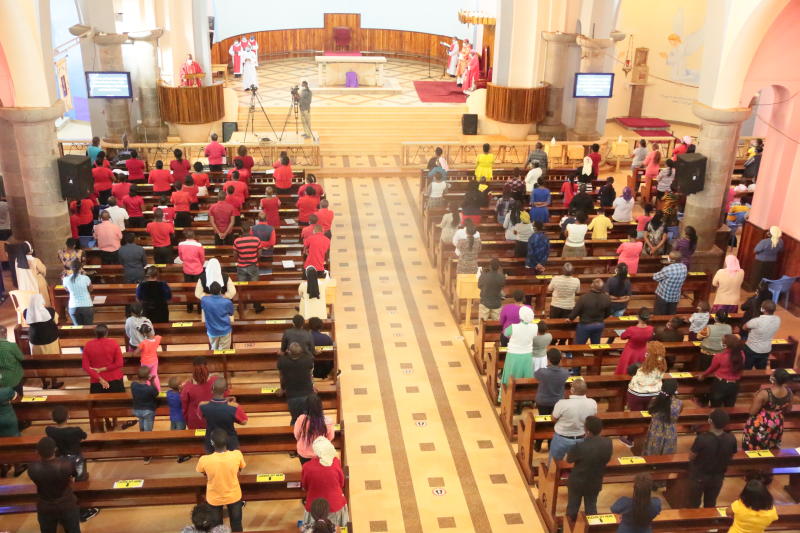×
The Standard e-Paper
Join Thousands Daily

At the iconic All Saints Cathedral this Good Friday, Provost Sammy Wainaina began his sermon yesterday with a reflection of past Easters defined by packed congregants celebrating the most important Christian fete.
Bereft of congregation, the cathedral's magnificent vaults bellowed his soft preaching to the multitudes watching the virtual service online, drawing parallels of Covid uncertainties to Jesus Christ’s tribulations that brought about the Easter season.